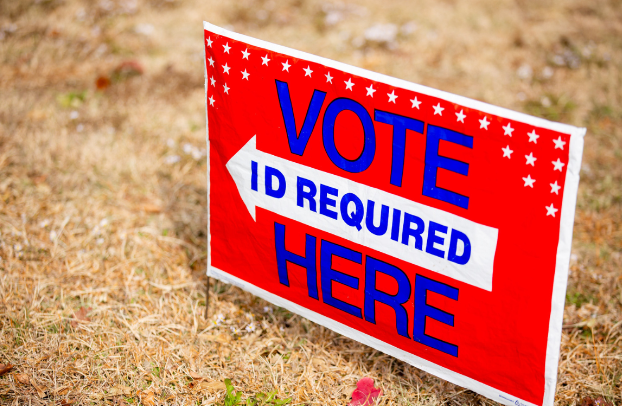
- Details
- By Neely Bardwell
Native Vote 2024. The San Carlos Tribe is speakng out against recent legislation recently by the U.S. House of Representatives that would further disenfranchise Indigenous communities. The “Safeguard American Voter Eligibility Act” (SAVE), introduced by House Republicans, would require anyone seeking to register to vote in federal elections to provide an approved form of photo ID.
Indigenous communities have struggled in the past with overcoming the strict voter ID laws. Many Native voters may not have the availability, financial resources, or mobility to obtain the necessary identification. Citizens living on reservations without traditional street addresses tend to use P.O. boxes because of the U.S. Postal Service limitations. Many states do not accept PO boxes as a valid form of residence.
This has contributed to Native Amercans having the lowest voter turnout of all groups, and contributing to this problem is states not accepting tribal IDs as valid forms of ID.
The San Carlos Apache Tribe is opposed to the legislation which they believe “undercuts the Civil Rights Act of 1964, the National Voter Registration Act and the Voting Rights Act of 1965,"
“This bill is designed to intimidate, discourage and prevent eligible tribal members from registering to vote,” San Carlos Apache Tribe Chairman Terry Rambler said in a press release. “This legislation is an unconstitutional attempt to suppress the Native American vote and comes after the high turnout in the 2020 election decisively impacted federal election results in Arizona.”
This bill considers approved forms of photo ID as a U.S. passport, military ID, birth certificate, naturalization certificate, or a government-issued photo ID card showing that the applicant’s place of birth was in the United States. Driver’s license and tribal ID cards typically do not prove a person’s citizenship and couldn’t be used to register under the SAVE Act. Only about 48% of U.S. citizens have a passport, according to State Department data.
More Stories Like This
Native News Weekly (August 25, 2024): D.C. BriefsUS Presidents in Their Own Words Concerning American Indians
Federal Judge Orders ICE to Halt Use of Pepper Spray, Arrests of Peaceful Protesters in Twin Cities
Tunica-Biloxi Cultural Leader John D. Barbry Walks On
Next on Native Bidaské: Federal ICE Activity in Minneapolis: Ruth Buffalo’s Perspective
Help us defend tribal sovereignty.
At Native News Online, our mission is rooted in telling the stories that strengthen sovereignty and uplift Indigenous voices — not just at year’s end, but every single day.
Because of your generosity last year, we were able to keep our reporters on the ground in tribal communities, at national gatherings and in the halls of Congress — covering the issues that matter most to Indian Country: sovereignty, culture, education, health and economic opportunity.
That support sustained us through a tough year in 2025. Now, as we look to the year ahead, we need your help right now to ensure warrior journalism remains strong — reporting that defends tribal sovereignty, amplifies Native truth, and holds power accountable.
 The stakes couldn't be higher. Your support keeps Native voices heard, Native stories told and Native sovereignty defended.
The stakes couldn't be higher. Your support keeps Native voices heard, Native stories told and Native sovereignty defended.
Stand with Warrior Journalism today.
Levi Rickert (Potawatomi), Editor & Publisher


